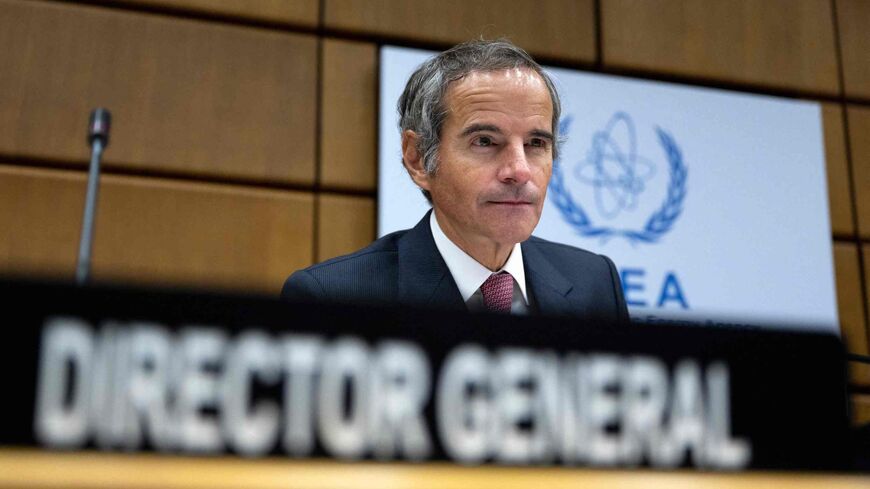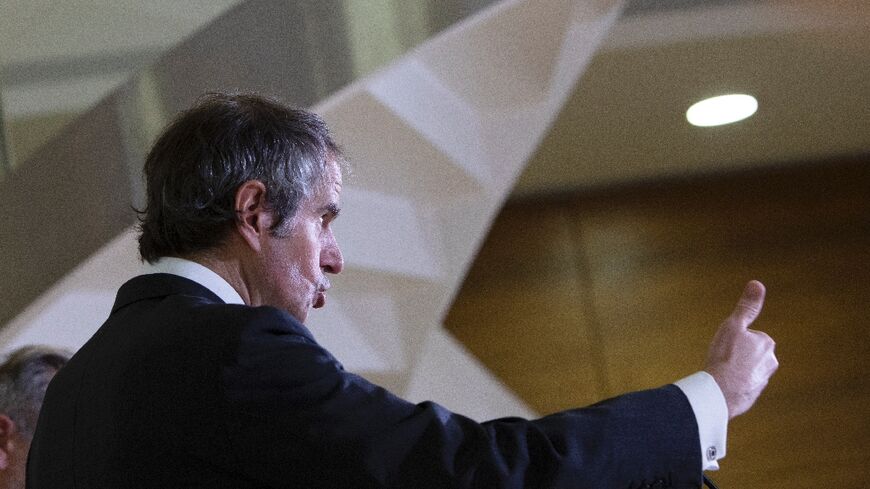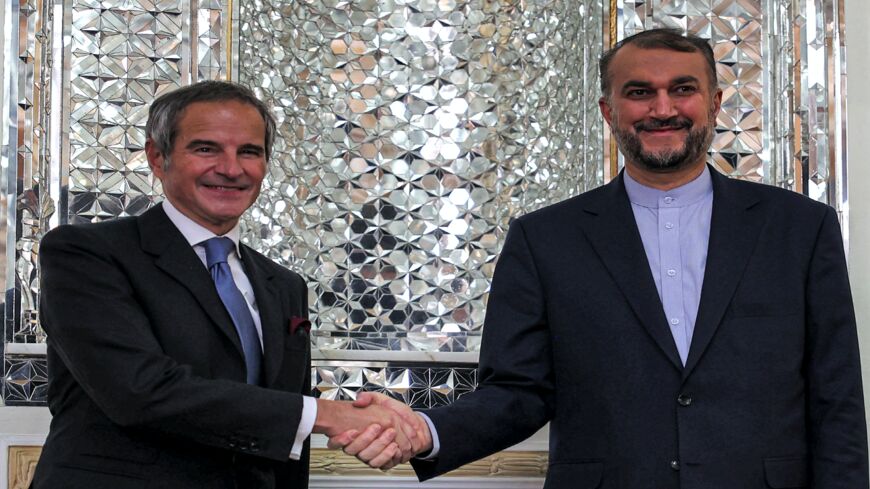Iran urges IAEA to dodge US, Israeli 'pressure' over nuclear program
The visit by the UN nuclear watchdog's chief comes two months after he raised concerns about losing track of Tehran's enrichment program and its possible capabilities to produce nuclear weapons.

TEHRAN — Iran's foreign minister, Hossein Amir-Abdollahian, said the International Atomic Energy Agency should treat Tehran with neutrality and not let bilateral cooperation be impacted by US pressure.
At a meeting with visiting IAEA Director General Rafael Grossi in Tehran on Tuesday, the Iranian minister accused the United States of "destabilizing" behavior toward Iran's nuclear program, the semi-official ISNA news agency reported.
The IAEA chief was on a two-day visit in Iran, starting on Monday, to discuss with Iranian officials stricter verifications of the country's controversial enrichment program and attend an international conference on nuclear technology in the central city of Isfahan, home to leading Iranian nuclear facilities.
"Your trip is taking place at a right time," noted Amir-Abdollahian, citing "complicated and sensitive circumstances in the region." He advised Grossi to take "unbiased and professional" positions on Iran's nuclear activities to help with "effective cooperation and restore security and stability to the region."
The pace of Iranian nuclear enrichment has in the past five years increasingly triggered IAEA concerns, with Grossi declaring earlier in March that the nuclear watchdog "has lost continuity of knowledge about the production and stock of centrifuges, rotors, heavy water and uranium ore concentrate." He also shared with the IAEA Board of Governors his concerns about the concreteness of public statements coming out of Iran regarding its capabilities to build atomic weapons.
At the Tehran meeting, Amir-Abdollahian also took aim at the atomic program pursued by Iran's sworn enemy, Israel, which is the only Middle East country believed to be in possession of a nuclear arms arsenal.
"Threats by certain Zionist regime officials to use nuclear weapons pose a menace to regional and global peace," he said, reminding the IAEA of its "imperative" to take the issue seriously.
According to an official readout from the meeting, Grossi told the Iranian minister that improved Iran-IAEA cooperation will undermine pushes by other parties "who use any pretext to seek escalation and confrontation in the region."
On the sidelines of the Isfahan conference, the IAEA director attended a separate joint press conference with Iran's atomic chief, Mohammad Eslami, where the two sides confirmed that a last March agreement on IAEA checks and balances was still in place and served as the baseline for future engagement.
Eslami told reporters that work was under way to remove "barriers" on the path of Iran-IAEA ties. Those barriers, he claimed, were mostly rooted in "political motivations."
At the very core of the challenges the UN nuclear watchdog has faced in its Iran inspections are ambiguities rising from uranium particles detected at two undeclared sites. Yet Eslami attempted to downplay those concerns, linking them to Israel. "We need to exercise caution to block Zionist moves aimed at complicating interactions between Iran and the IAEA," he said.
The Islamic Republic has repeatedly accused Israel and the United States of pressuring the IAEA in its periodical assessments of Tehran's nuclear activities, an argument that Grossi dismissed during the press conference. "We do not pay attention to foreign actors and only focus on our dealings with Iran."
A 2015 nuclear deal between Iran and the world powers, known as the Joint Comprehensive Plan of Action (JCPOA), has been in growing disarray since the 2018 US pullout from the accord. A year later, Tehran began ramping up enrichment in a phased process, and way beyond the caps imposed by the accord.
The Iranian nuclear chief, however, denied that the accelerated enrichment was in any breach of the JCPOA. "It was the United States, which left the agreement, not the Islamic Republic," he declared. "Iran has adhered to the deal and has unilaterally honored commitments in a gesture of goodwill."





